ã€Global Network Technology Report】 On October 23-24, 2017, the Fourth National Functional Genomics Summit Forum was successfully held in Beijing. The conference was organized by Baimai Keji Research Institute and organized by Beijing Baimai Ke Biotechnology Co., Ltd. It has three branch sites: Genes and Big Data, Genomics and Functional Genomics, Gene Technology and Precision Medicine. Nearly 70 academic experts from the conference brought wonderful reports, which aroused widespread sympathy from the guests. More than 600 experts and scholars in the field of life sciences and medical health participated in the latest scientific research.
The Development Direction of Gene Technology and Opportunities and Challenges
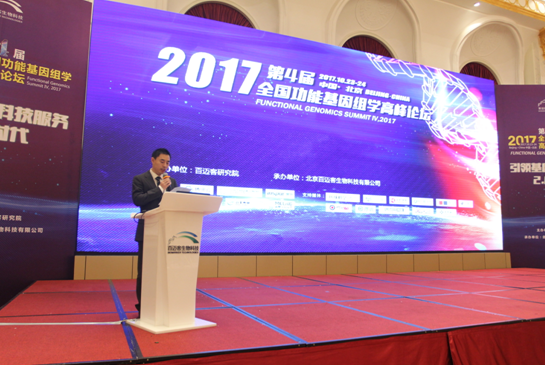
Mr. Zheng Hongkun, President of Baimai Co., delivered a speech
During the opening ceremony, Mr. Zheng Hongkun, President of Baimai Co., Ltd. pointed out: With the continuous development of gene sequencing technology, the cost has dropped drastically, and the country’s strong support and investment in the field of gene research has led to more and more in-depth research in the field of genetics. The accumulation of data is increasing. The world has accumulated tens of billions of dollars and produced huge amounts of genetic data of nearly 20Pb. In the face of massive sequencing results, the severe challenges in data mining and interpretation are becoming more and more obvious. This poses new requirements for our scientists. How to make good use of these data resources in the age of genetic big data has become an important issue in the new era of biological science research. This also means that the “Genes 2.0 of Genes Technology Serviceâ€, which is characterized by gene big data mining proposed by Baimai Ke, has come.
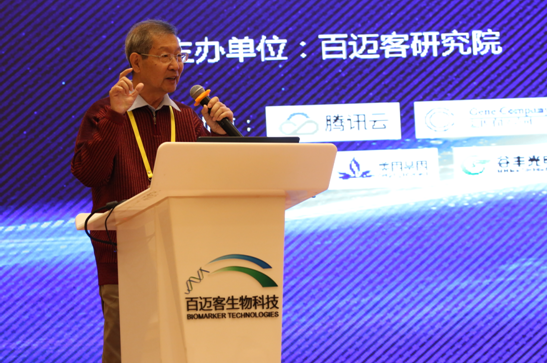
Academician Chen Runsheng makes a report
Academician Chen Runsheng of the Institute of Biophysics of the Chinese Academy of Sciences introduced the precision medicine and gene big data from the perspective of the pioneers. Academician Chen Runsheng introduced: As an epoch-making industry, precision medicine has been included in strategic planning by various countries. It has the potential to directly address the current difficulties faced by the medical industry and will explode in the next few years. It is expected that the global market will reach $223.8 billion by 2018.
Academician Chen pointed out that the development goal of precision medicine in China is based on the common high incidence of major diseases in China and a number of rare diseases as the starting point to build a large population of millions of natural populations and specific disease queues, multi-level accurate medical knowledge base system and biomedical sciences. The big data sharing platform breaks new generation of life sciences technology and big data analysis technology, and establishes an innovative experimental and analytical technology system for biomarkers, targets, and preparations for large-scale research and development of disease early warning, diagnosis, treatment, and efficacy evaluation.
Academician Chen also pointed out the problems faced by current large-scale genetic data: rapid accumulation of data has not been effectively interpreted; the integration of highly heterogeneous data is still in its infancy; the sample-end challenge directly threatens the quality of data. Challenges often mean opportunities. A lot of unexplained data also brings the possibility of unlimited innovation!
Massive Data Opens the Age of Gene Big Data
The development of sequencing technology allows genetic data to accumulate at speeds far beyond Moore's Law. Massive data sets new requirements for researchers and provides broader opportunities. Zhang Zhang, a researcher at the Beijing Institute of Genomics, the Chinese Academy of Sciences, briefed everyone at the conference on the status quo and shortcomings in the field of gene big data management in China and his solutions. According to incomplete statistics, China's biometrics data production accounts for about 40% of the world's total, but these valuable data resources are handed over to others for management, mainly due to China's long-term lack of biodata centers covering multi-omics data sources. The Big Data Center for Life and Health of the Beijing Institute of Genomics, Chinese Academy of Sciences faces the major strategic needs of China's population health and social sustainable development. It relies on the data of national precision medicine and important strategic biological resources to establish large-scale data storage and integration of large-scale biosciences. With the mining analysis research system and the development of new techniques and methods for the construction, mining, and analysis of the big data system of the group science, a multi-omics data sharing and sharing platform for life and health has been initially established.
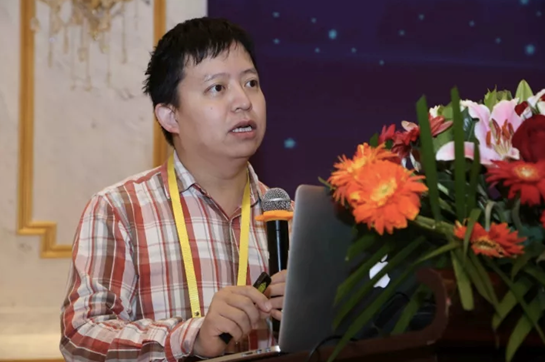
Gaoge Researcher makes a report
How to tap treasure in massive data? Peking University’s Gaoge Researcher shared his research ideas at the conference. Taking lncRNA as an example, about 80% of the gene models have not yet been included in the database. The Gaoge team used the cutting-edge cognitive learning model and the existing data to discover a variety of human novel lncRNAs, and they also gave a complete data mining application tool chain.
The introduction and application of new technologies in the genetic industry
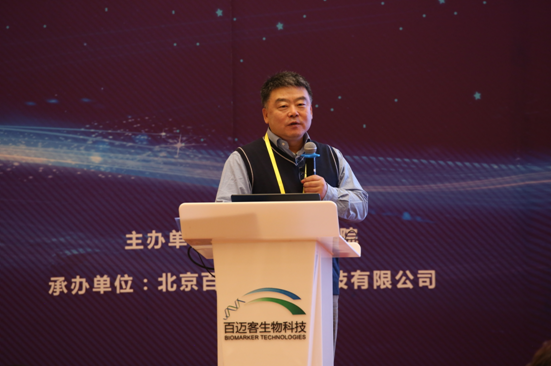
Yu Jun researcher to make a report
One of the highlights of the conference is the gathering of the latest technologies in the field of gene technology and their application results. Professor Yu Jun of the Beijing Institute of Genomics of the Chinese Academy of Sciences looked forward to the development prospects of three-generation and four-generation sequencing instruments. He pointed out that although the second-generation sequencing machines have made great breakthroughs in terms of quality, throughput, and cost, they are still reading long. There are limitations on application scenarios. The common feature of the third and fourth generations of sequencers is that they do not require amplified DNA and can be sequenced at the single-molecule, single-cell level. This single-cell and single-molecule technology will lead the development of future in vitro diagnostic techniques.
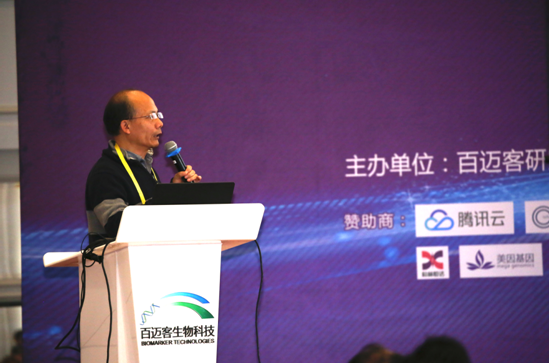
Wang Xiaowu's researcher made a report
Wang Xiaowu, a researcher at the Chinese Academy of Agricultural Sciences, used genome-wide resequencing to reveal the evolutionary path of polyploidy. They used the gene sequencing of Brassica to reveal the evolution of polyploids from the molecular level. This process has important reference significance for breeding science.
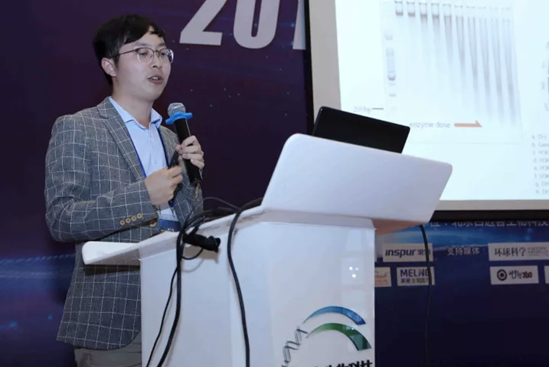
Professor Zhang Xianlong's research group Wang Maojun made a report
The first author of the article "Asymmetric subgenome selection and cis-regulatory divergence during cotton domestication" published in "Nature Genetics" Wang Maojun (Prof. Zhang Xianlong) made a report on genome sequencing and helped cotton functional genome research. They performed whole-genome re-sequencing on cotton cultivars and wild cultivars, and found that there was a clear subgenomic asymmetric selection process in the artificial selection process of cotton. GWAS analysis found more sites related to fiber quality for molecular breeding design. It has important reference value. Adhere to more than 10 years of functional genomic research and found that more than 20 genes involved in the formation of important forms will play an important role in cotton molecular design breeding.
The development of gene sequencing technology has made it possible to achieve precise medical care
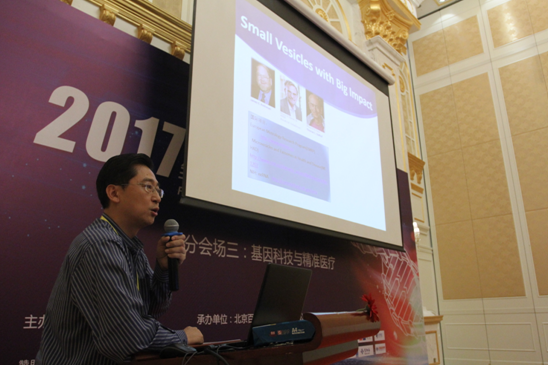
Bai Yujie, Deputy Director of Hainan Institute of Stem Cell Research, Hainan Medical College, made a report
Bai Yujie, deputy director of Hainan Institute of Stem Cell Research, Hainan Medical College, began with the generation, secretion mechanism, structure and composition of exosomes, and introduced the application of exosomes in liquid biopsy. A summary of its separation and analysis methods, among which the application of microfluidic chip technology in the separation and analysis of exosomes is highly recommended.
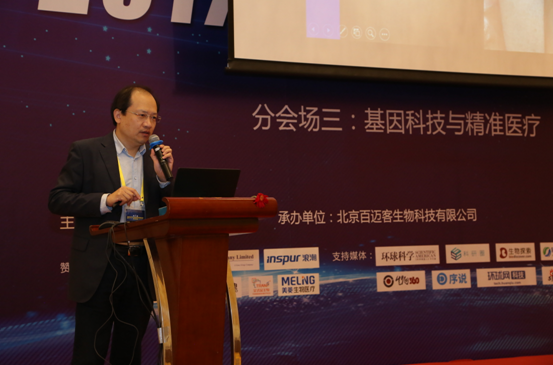
Dr. Li Jian, Chief Physician, Department of Thoracic Surgery, Peking University First Hospital
Li Jian, chief physician of Thoracic Surgery Department of the First Hospital of Peking University, gave a wonderful report on lung cancer surgery and control strategies. The death toll from lung cancer is far greater than that of other cancers. The team of Li Jian explored another way. After researching it, he came up with a solution that was completely different from the mainstream, and found a new method that could significantly increase the long-term survival rate of lung cancer.
At this summit, experts from all walks of life shared their latest research findings in different fields. This includes the introduction of new gene analysis technologies, the latest applications of genomics in animal and plant research, and the application of gene sequencing in precision medicine. This forum has achieved great success with the care and support of leaders at all levels and experts and scholars from all walks of life, and has achieved fruitful results. Baimai guests will continue to remember and continue to provide scientific researchers with a platform for in-depth learning and communication such as the “Functional Genomics Summit Forumâ€, which will promote the sharing and dissemination of outstanding achievements of scientists. Baimai is willing to join hands with all partners to spare no effort to seek common development, so that genetic technology can better serve the community and benefit the people.
Fiber Optic Box,Fiber Optics Box,Fiber Optic Boxes,Fiber Optic Junction Box
Cixi Dani Plastic Products Co.,Ltd , https://www.danifiberoptic.com